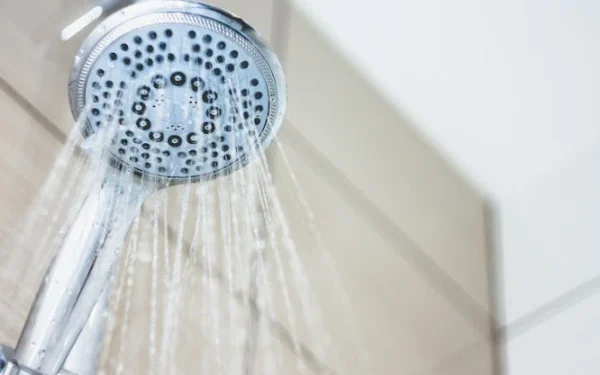Bathing is a fundamental part of personal hygiene and wellness, but not everyone knows the best time to take a shower. While many people start their day with a refreshing morning bath, health experts are now warning that this common routine might not be ideal for your skin. According to medical professionals, showering in the morning may contribute to various skin problems, including acne.
Why the Timing of Your Bath Matters
Bathing helps cleanse the skin of dirt, sweat, oil, and environmental pollutants. However, experts are now highlighting that the time you choose to shower can significantly impact your skin’s health. Bathing in the morning might feel invigorating, but doctors say it could leave your skin more vulnerable to irritation and breakouts.
Morning Showers and Their Impact on Skin Health
Dr. Aragona Giuseppe, a medical advisor at Prescription Doctor, explains that morning showers may not adequately cleanse the skin of the dirt and bacteria that accumulate during the day. Throughout the day, your skin and hair are exposed to a variety of environmental elements such as air pollution, dust, pollen, and chemicals. When combined with sweat and natural skin oils, these elements form a layer of impurities on the skin that can clog pores and trigger acne.
By the time evening arrives, your body has accumulated these irritants. If you skip a nighttime shower and go to bed without washing them off, these particles can transfer to your bedding. Over time, this can lead to dirty sheets and pillowcases that harbor bacteria, further aggravating skin issues such as acne, itchiness, dryness, and allergic reactions.
The Case for Evening Showers
Evening showers offer several advantages that can contribute to healthier skin and overall hygiene. Washing off the day’s accumulation of pollutants, allergens, and sweat helps keep the skin clean and allows it to rejuvenate overnight. This can be particularly beneficial for people with sensitive or acne-prone skin.
Benefits of Showering Before Bed:
- Removes Daily Buildup: Evening showers wash away the grime, bacteria, and allergens collected throughout the day.
- Promotes Better Sleep: Warm showers before bed help relax the muscles and lower the body’s core temperature, aiding in faster and deeper sleep.
- Improves Skin Health: Clean skin allows better absorption of moisturizers and skincare products applied at night.
- Reduces Bed Contamination: Clean skin and hair mean cleaner bed linens, which helps prevent skin issues and allergies.
Morning Shower Myths Debunked
Many people believe that morning showers are necessary to wake up and feel energized for the day ahead. While this may be true for some, Dr. Giuseppe notes that the energizing effect of a shower can still be achieved with an evening routine if complemented by other morning activities such as stretching, hydration, and exposure to sunlight.
Another misconception is that morning showers help control body odor throughout the day. However, body odor is primarily managed through the use of deodorants, antiperspirants, and clean clothing. Skipping an evening shower and allowing bacteria and sweat to sit on your skin overnight may actually worsen body odor problems in the long run.
Skin Experts Recommend Evening Bathing for Acne Prevention
Dermatologists agree that one of the most effective ways to prevent acne and skin irritation is to maintain clean skin, especially before sleep. Acne often develops when oil, bacteria, and dead skin cells clog pores. Going to bed with a clean face and body reduces this risk and supports the skin’s natural repair processes, which are most active during nighttime.
Even individuals who do not suffer from chronic acne can benefit from evening showers, as they help in minimizing the buildup of allergens and environmental stressors that can lead to skin sensitivity, dryness, or dullness.
When Morning Showers May Still Be Beneficial
Despite the benefits of evening showers, there are scenarios where morning bathing is still appropriate. For instance, people who exercise early in the day or engage in labor-intensive jobs may need to shower in the morning to clean off sweat and bacteria. Morning showers can also be useful in colder climates where a warm shower helps ease the body into waking up.
However, even in these cases, dermatologists suggest incorporating a quick rinse or face wash before bedtime to remove lingering particles and sweat from the day.
Establishing a Balanced Bathing Routine
The ideal approach to bathing may depend on your lifestyle, skin type, and daily activities. Some people may benefit from showering twice a day — a quick rinse in the morning and a thorough cleansing at night. Others may choose to focus solely on an evening shower routine for optimal skin health.
Tips for Healthy Bathing Habits:
- Use Lukewarm Water: Avoid hot water, which can strip the skin of its natural oils.
- Limit Shower Time: Prolonged exposure to water can dry out the skin.
- Choose Gentle Cleansers: Harsh soaps can irritate the skin and disrupt its natural barrier.
- Moisturize After Showering: Apply lotion while the skin is still damp to lock in moisture.
- Change Bedding Regularly: Clean sheets help reduce the risk of acne and allergies.
Conclusion
Bathing is a vital part of personal hygiene, but its timing can significantly impact skin health. While morning showers may feel refreshing, dermatologists and medical experts recommend evening showers as a better option for maintaining clean and healthy skin. By removing the day’s buildup of pollutants and bacteria before bed, you can prevent acne, improve sleep, and promote overall skin wellness. Ultimately, the key is to adopt a routine that supports your body’s needs while minimizing potential harm to your skin.
Whether you prefer to shower in the morning or at night, understanding the effects of your bathing habits can go a long way in promoting long-term skin health and hygiene.

























